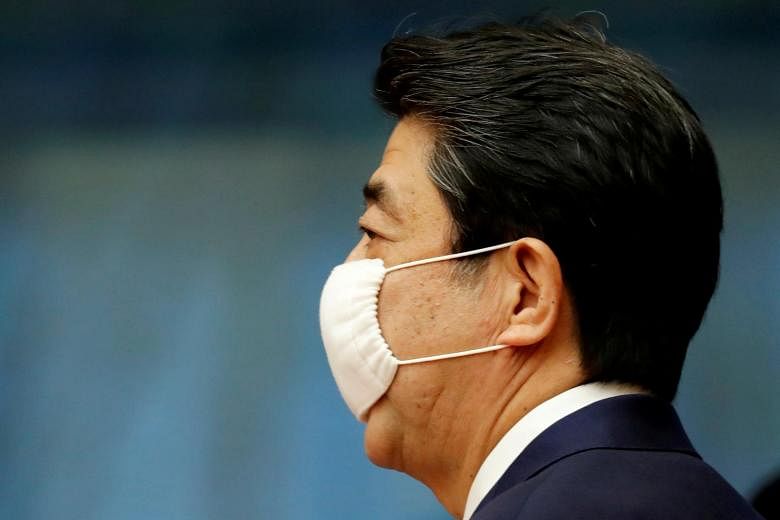Days after Okinawa prefecture declared a state of emergency, the central Japanese prefecture of Aichi, where Nagoya city is located, followed in its footsteps yesterday amid a surge in Covid-19 cases.
Tokyo is also seeing a sharp rise, prompting Governor Yuriko Koike to yesterday urge the capital's residents to abstain from travelling during the summer holidays, as have her counterparts elsewhere in Japan, as daily records for new infections are routinely being shattered.
In contrast, the national government is seen as being dawdling and bungling amid Prime Minister Shinzo Abe's reluctance to convene Diet sessions and even hold news conferences.
Mr Abe, who met reporters briefly in Hiroshima yesterday after a ceremony to mark the 75th anniversary of the atomic bombing, insisted the country was not at a stage to need another state of emergency.
It was his first news conference since June 18, and it ended abruptly as he ignored questions from reporters calling for greater accountability.
Mr Abe said there are now far fewer serious cases, with hospitals not as burdened as they were during the country's state of emergency from April 7 to May 25.
"The aim is to prevent the spread of infections while also keeping social and economic activities going," he added. "This is a very difficult task, but we must act quickly and necessarily to protect lives and livelihoods while avoiding the need for another state of emergency."
But these statements, repeated ad nauseam for weeks by Cabinet ministers, have increasingly suggested that the government is tone-deaf to the crisis.
Osaka registered a new high of 225 cases yesterday, as did Kanagawa and Chiba in the Greater Tokyo region, with 119 and 76 infections respectively.
Tokyo had 360 cases yesterday, the 10th day in a row it has recorded more than 200 cases. Its 14,645 infections account for about one-third of Japan's more than 44,000 cases.
In sharp contrast to the day the state of emergency was lifted on May 25, when there were just 21 cases in the entire country, yesterday saw 1,473 cases as at 8pm.
Mr Abe's Cabinet support has hit new lows. A poll by Japan News Network on Monday showed approval at just 35.4 per cent, with support for his government's handling of the crisis plunging 20 percentage points from last month to 26 per cent.
The Prime Minister has said it was not necessary for him to address the nation on Covid-19 issues, passing the buck to Health Minister Katsunobu Kato, Economy Minister Yasutoshi Nishimura and Chief Cabinet Secretary Yoshihide Suga.
He has also resisted calls to reopen the Diet.
Mr Jun Azumi, the Diet Affairs Chief of the opposition Constitutional Democratic Party of Japan, said: "This ongoing coronavirus crisis is not something that can be overcome by leaving the matter to others or relevant Cabinet ministers. It's incomprehensible as to why a country's leader doesn't provide an explanation to the people, including at the Diet."
Mr Abe has not issued any travel advisories for the summer vacation and over the upcoming Bon festival, when millions of Japanese traditionally return to their home towns.
"We hope a new and safe style of travel will take root in Japan in the era of Covid-19," he said, adding that travel should continue but with the necessary safeguards.
This is in contrast to local leaders such as Ms Koike and Aichi Governor Hideaki Omura, who said yesterday: "During the summer vacation... we would like all residents to restrain their behaviour and try to drastically curb virus infections."
Shizuoka Governor Heita Kawakatsu added: "Please rethink if your family visits really must take place now."












